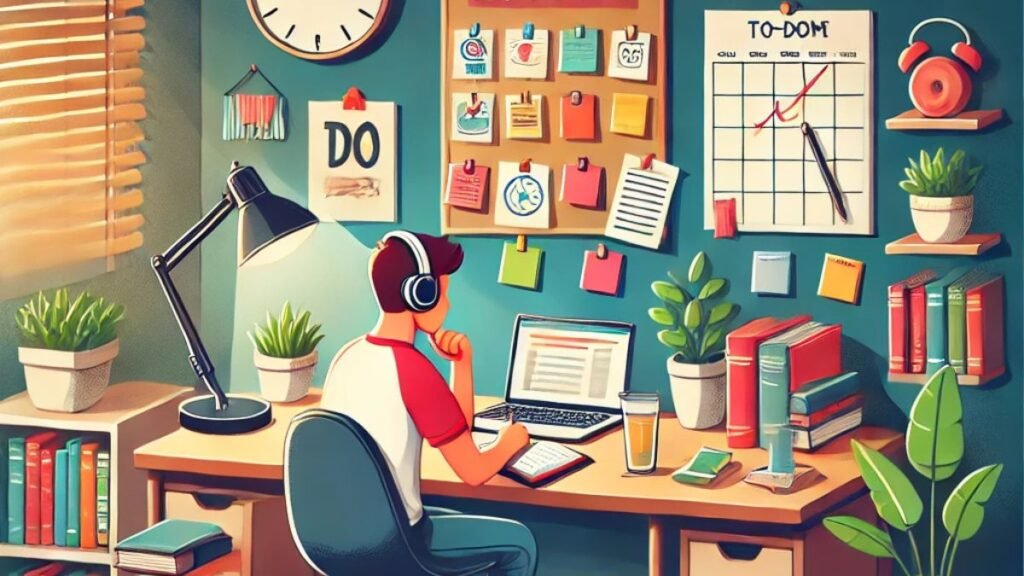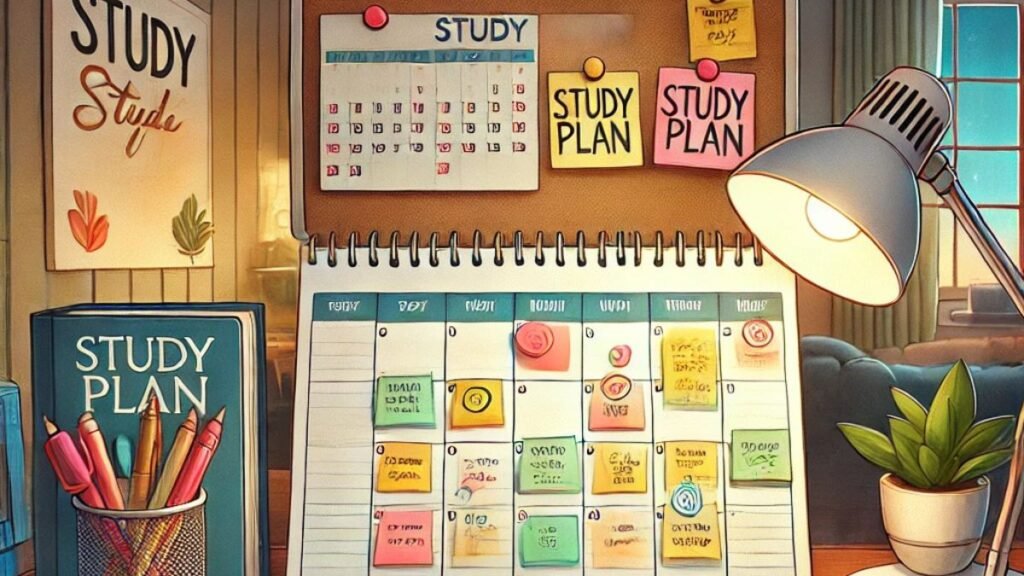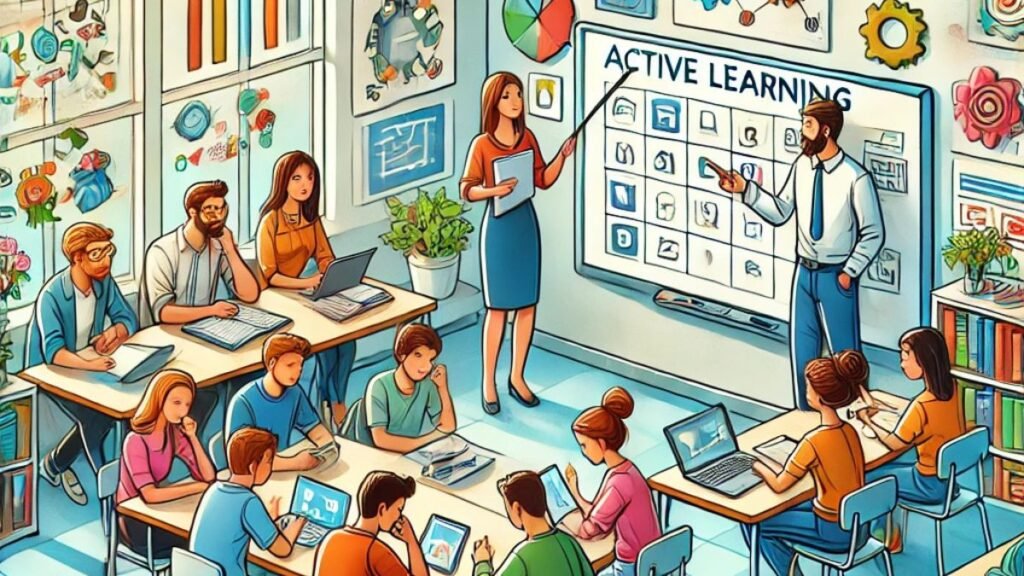Studying effectively is an essential skill that can change your academic life. Whether preparing for exams, working on assignments, or simply trying to retain new information, having a solid study routine can make all the difference. But the question is: How do you study effectively?
In this post, we will explore effective studying, why it is crucial, how to do it, and where to study. These basic building blocks can turn your study sessions into productive and rewarding experiences. Let’s break it down.
What Does It Mean to Study Effectively?
Effective studying goes beyond just reading through textbooks or notes. It’s about understanding and retaining the material in a way that helps you apply it when needed. It means focusing on the quality of your study time, not just the quantity. Effective studying also involves active engagement with the material, organizing your work, and being consistent with your efforts.

Key elements of effective studying include:
Active learning: Engaging with the content through activities like summarizing, questioning, or teaching others.
Time management: Allocating specific time blocks for studying and sticking to them.
Concentration: Focusing on one task at a time without distractions.
Reviewing regularly: Going over the material multiple times to reinforce memory.
Why Is Effective Studying Important?
Studying effectively is important because it helps you learn faster, retain information for longer periods, and reduce stress during exams. When you have a structured study plan and follow effective techniques, you can master the material more easily.
Effective studying also helps in:
Improved retention: When you study in a focused and structured way, you are more likely to remember what you’ve learned.
Less procrastination: A clear plan helps you stay on track and prevents you from delaying your study sessions.
Better exam performance: When you study effectively, you’ll perform better in exams, because you are not only memorizing information but also understanding it.
Reduced stress: Knowing that you have a clear plan and are following it can reduce the stress that often comes with last-minute cramming.
How to Study Effectively: 7 Proven Tips
Now that you understand what effective studying is and why it matters, let’s look at how you can study effectively. Use these strategies to maximize the productivity and effectiveness of your study time.
-
Create a Study Plan
A study plan is like a roadmap for your academic journey. It helps you organize your time, set goals, and ensure that you’re covering all the topics you need to learn. Without a study plan, it can be easy to forget important material or waste time on unimportant tasks.

How to create a study plan:
Start by setting clear goals. Divide your workload into bite-sized, achievable tasks for better focus.
Allocate dedicated time periods to study each subject or topic systematically.
Focus first on the subjects or topics you find most challenging to overcome obstacles early.
Stick to the schedule as much as possible. Consistency is key.
A study plan ensures that you stay on track and cover everything that needs to be learned.
-
Choose the Right Study Environment
Your study environment plays a significant role in how effectively you study. A chaotic or noisy environment often hinders focus and disrupts concentration. On the other hand, a quiet, well-lit space can help you focus better.
How to create the perfect study environment:
Choose a peaceful, interruption-free spot to optimize your study sessions. This could be a library, study room, or even a quiet corner in your home.
Make sure the space is well-organized. Remove unnecessary clutter that can distract you.
Keep your study materials organized and within reach. This includes your books, notebooks, pens, and a computer or tablet if needed.
The right environment can increase your concentration and make your study sessions more productive.
-
Use Active Learning Techniques
Active learning involves engaging with the material in a way that helps you understand and remember it. Rather than passively reading or watching videos, active learning requires you to actively interact with the content.

Some active learning techniques include:
Create concise summaries in your own words after reviewing each section to reinforce understanding.
Teaching: Try to teach the material to someone else. This can reinforce your understanding.
Use visual aids: like mind maps to structure information and connect related concepts.
Self-testing: Quiz yourself on the material to test your knowledge.
Active learning helps you grasp complex topics, retain information longer, and improve problem-solving skills.
-
Take Regular Breaks
Long, uninterrupted study sessions may cause mental fatigue and reduce efficiency. Taking regular breaks allows your brain to rest and recharge, so you can continue studying effectively.
How to take breaks:
Adopt the Pomodoro technique by working in 25–30-minute bursts, followed by short 5-minute pauses. After completing four cycles, reward yourself with a 15-30 minute extended break to recharge.
Use breaks to do something relaxing or energizing, like stretching, walking, or listening to music.
Avoid using breaks to check your phone or social media. Instead, engage in activities that help you recharge without distractions.
Taking breaks prevents mental fatigue and helps you stay focused throughout your study session.
-
Practice Retrieval and Spaced Repetition
Two key techniques for retaining information are retrieval practice and spaced repetition.
Retrieval practice involves testing yourself regularly on the material. Challenge yourself to retrieve information from memory rather than simply rereading your notes. This strengthens your long-term memory.
Spaced repetition means reviewing material over increasing intervals. Instead of cramming all at once, review what you’ve learned after one day, one week, and one month.
Both techniques help reinforce memory and improve retention, making it easier to recall information during exams.
-
Stay Organized
Organization is essential for effective studying. When your materials are disorganized, it can be difficult to find what you need, leading to wasted time and frustration.
How to stay organized:
Keep your notes and study materials organized by subject or topic.
Use folders, notebooks, or digital tools to store your materials.
Use a planner or digital calendar to track deadlines, exams, and study schedules.
An organized study routine ensures that you can find everything quickly and stay on top of your tasks.
-
Stay Healthy and Get Enough Rest
Your physical and mental health directly affects your ability to study effectively. Lack of sleep, poor nutrition, and stress can all reduce your focus and concentration. Caring for your physical health is equally crucial as nurturing your mental well-being.
How to stay healthy while studying:
Sleep well: Aim for 7-9 hours of sleep each night. A well-rested brain retains information better.
Eat healthy: Consume a balanced diet with plenty of fruits, vegetables, and protein to fuel your brain.
Exercise regularly: Physical activity increases blood flow to the brain, which helps improve focus and memory.
Combat stress through mindfulness practices, such as deep breathing or meditation.
By taking care of your body and mind, it can maximize your study effectiveness.
Where to Study for Maximum Productivity?
Your study environment plays a big role in how effectively you study. As mentioned earlier, finding a place that suits your needs can make all the difference.
Some ideal study spots include:
Libraries: Quiet and organized, libraries provide a distraction-free environment for studying.
Study rooms: If you have access to a private study room, this can be an excellent place to focus.
Cafes: If you prefer some background noise, cafes can be a good option, provided they’re not too loud.
Your room or desk: If you set it up correctly, your own space can be just as effective as a library.
Choose a place that helps you concentrate and limits distractions.
FAQs:
- What is effective studying?
Effective studying means understanding and retaining material in a way that you can apply it when needed. It focuses on quality over quantity and involves active learning, organization, and consistency. - Why is effective studying important?
Effective studying helps you learn faster, retain information longer, reduce procrastination, perform better in exams, and lower stress during academic preparation. - How can I create an effective study plan?
Start by setting clear goals, breaking tasks into manageable chunks, allocating specific time slots for subjects, and prioritizing challenging topics. Stick to your plan consistently. - What is the best environment for studying?
A quiet, well-lit, and organized space free from distractions is ideal. Libraries, study rooms, or even a clutter-free desk at home can enhance focus. - What are some active learning techniques?
Active learning techniques include summarizing content, teaching it to others, creating mind maps, and practicing self-quizzes to reinforce understanding and memory. - How does the Pomodoro method work, and why is it effective for productivity?
- The Pomodoro technique involves studying for 25-30 minutes, followed by a 5-minute break. This technique enhances concentration and helps you avoid burnout during long study sessions.
- How can I retain information better?
Use techniques like retrieval practice (testing yourself) and spaced repetition (reviewing material over intervals) to strengthen long-term memory. - Why are breaks important during study sessions?
Breaks prevent mental fatigue, help recharge your mind, and improve productivity by allowing your brain to rest and process information. - How can I manage stress while studying?
Manage stress by practicing relaxation techniques like deep breathing, staying physically active, getting enough sleep, and maintaining a healthy diet. - How can you maintain organization to make your study sessions more efficient?
- Keep notes and materials sorted by topic, use folders or digital tools, and track deadlines and schedules with a planner or calendar.
- Where are the best places to study?
Libraries, study rooms, cafes with minimal noise, or a well-organized desk at home are some of the best options for productive study sessions. - How can I stay motivated to study effectively?
Set clear goals, reward yourself for achievements, track your progress, and remind yourself of the long-term benefits of studying.
Conclusion
Studying effectively is about more than just spending time with your books. It’s about using the right techniques, staying organized, and taking care of your well-being. By creating a study plan, choosing the right environment, practicing active learning, and taking regular breaks, you can improve your focus, retention, and academic performance.
Remember, studying effectively is a skill you can develop with practice. Stick to the tips outlined in this guide, and you’ll soon find that your study sessions become more productive and less stressful. Implement these tips now to elevate your learning experience and academic success. Happy studying!